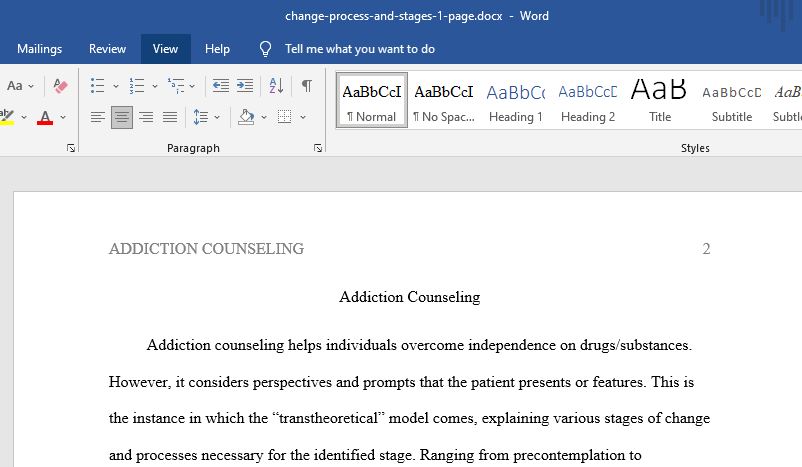Describe the stage of change, in the case study in reference to (Miller & Miller, 2014)
“George is a 21-year-old college student who has been referred to you because he has been suspended from the university he attends because of an alcohol/drug-related charge. He has been told that he cannot be considered for re-enrollment as a student until he has therapy to address his alcohol/drug use. In your first session with him, you talk with him about the need to do a formal alcohol and drug assessment because of his desire to return to his studies at the university. In response to your description of the assessment process, George tells you that he does not see himself as having a problem with alcohol/drugs. He tells you that he was at a party on campus that was busted by the campus police, and he believes they simply overreacted to the presence of drugs at the party and arrested him and a few others (Miller & Miller, 2014).”
- “Which stage of change do you see George at (Miller & Miller, 2014)?”
- “Which process(es) of change would you use with George based on his stage of change (Miller & Miller, 2014)?”
- “How would you build this process(es) into the counseling sessions (Miller & Miller, 2014)?
Please use reading to properly answer question answer must be at least 200 words. PAGES 372-378 are required to read to assist with this assignment
Answer preview:
Words:325

